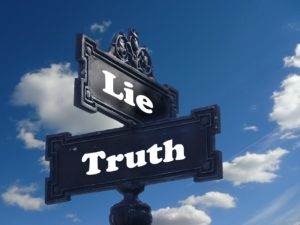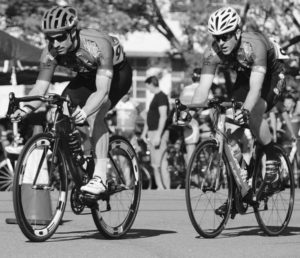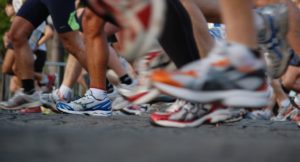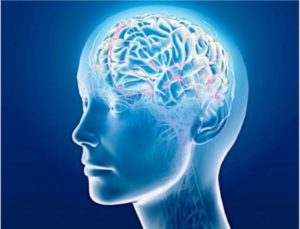FitGreyStrong observation:
The mass media and ‘rogue’ researchers are confusing the public by suggesting that exercise does not facilitate weight loss. Sensationalised, poorly researched and inaccurate media presentations have misled consumers because a thorough assessment of the evidence wasn’t undertaken. Some sports scientists and doctors have further exacerbated the problem by claiming that physical inactivity does not contribute nor is associated with becoming overweight or obese.
FitGreyStrong Advice:
Be extremely careful about making any changes to your exercise, lifestyle, dietary, supplement or medication regimens based on information produced through the media. Consult competent health care experts with recognised qualifications and good reputations, do your own research, talk to those you trust and use some good old commonsense before making any changes.
For those interested in wanting to know more on this topic please continue reading see below.
For local Townsville residents interested in FitGreyStrong’s Exercise Physiology services or exercise programs designed to achieve the above-mentioned benefits or to enhance athletic performance, contact FitGreyStrong@outlook.com or phone 0499 846 955 for a confidential discussion.
For other Australian residents or oversees readers interested in our services, please see here.
Exercise, weight loss and why it doesn’t work for everybody
The following article represents the first of a series of blogs that will explore the reasons behind why exercise may fail as a weight loss strategy. It is often assumed that when someone starts an exercise program, weight or body fat loss will happen naturally and almost by accident. However, recent research demonstrates that the magnitude of individual weight loss varies dramatically, with some losing a substantial amount of weight, others maintaining weight and a few actually gaining weight. The question is, how is this possible? What compensatory mechanisms are at play to negate the effectiveness of exercise?
In this first installment I want to discuss how the mass media and ‘rogue’ researchers have contributed to the unfortunate situation where the message about the efficacy of exercise has been obfuscated and distorted. As a result the general public have received mixed messages as to whether exercise has any role to play in weight loss at all. Some sections of the media have done a pretty good job at cherry-picking research or commentators that promote the idea that exercise is largely ineffective when it comes to weight loss. This has contributed to the public perception, then, that exercise may have limited usefulness as a method to facilitate weight loss.
One of the best examples of this occurred when the Australian Broadcasting Corporation’s (ABC) TV show, Catalyst, aired a segment called “Toxic Sugar” (see here) claiming that:
“The studies show that exercise has virtually no effect on weight loss. One thing exercise does is it makes people hungry.”

Such sweeping claims – that are not based on the actual scientific evidence – are particularly worrisome given the impact that such high-rating TV shows may have on the lifestyle choices and behaviour of their viewers. Why such organisations would besmirch the value of exercise is an interesting conundrum that has no easy answers.
There are a few possible reasons why this has happened and they are by no means based on any evidence I have been able to dig up and for this I apologise. The speed of the 24/7 news cycle, nevertheless, in conjunction with the need to sensationalise stories and news segments in an effort to gain viewer attention and watchership, have more than likely played a part. Media outlets do not undergo any critical assessment from any independent body – either internally or externally – to corroborate the accuracy of their program’s content. They can therefore function with relative impunity and little accountability. Media outlets are consequently free to make – without fear or retribution – poorly researched and misleading radio or TV shows that may not be in the public’s best interests.
Another reason why the media may produce content that is inaccurate and misleading is a simple one. Basically, the research that has gone into producing a show or print article has been hasty and superficial without a thorough review of the scientific evidence. If you consider the Catalyst segment mentioned above it was so lopsided because of one key component that was missing from the show – an opposing voice. The report ended up being totally biased because it did not present – in an objective manner – robust and contradictory scientific evidence. It also failed to interview any expert commentators that hold serious doubts about many of the claims that were aired.
The public’s confusion regarding the role of exercise in facilitating weight loss was further compounded, after well respected, credentialed doctors and sports scientists suggested in the British Journal of Sports Medicine that physical inactivity and obesity was a myth. Authors Malhotra and co in their editorial titled “It is time to bust the myth of physical inactivity and obesity: you cannot outrun a bad diet” (see here) made one of the most contentious claims in decades by suggesting that increasing obesity rates were not related to changes in physical activity levels. To put it another way, what they were essentially saying is this:
Doing no physical activity and sitting on your arse all day does not contribute to your risk of putting weight on or becoming obese!!
Here’s an interview on ABC’s Lateline with one of the authors, Dr Aseem Malhotra,
Let’s now just take a look at exactly what was put to print, so you the reader, can judge whether or not I am justified in being perplexed by their editorial. In it they state:
“Regular physical activity reduces the risk of developing cardiovascular disease, type 2 diabetes, dementia and some cancers by at least 30%.”
Fine, that’s dandy, I’m definitely happy with that! They continue:
“However, physical activity does not promote weight loss (my emphasis). In the past 30 years, as obesity has rocketed, there has been little change in physical activity levels in the Western population” (p. 1).

This claim was based on one paper (see here) published in 2013 by Amy Luke and Richard S Coope (Department of Public Health Sciences, Stritch School of Medicine, Loyola University Chicago, Chicago, USA) which theorised that energy expenditure changes over the 20th century could not explain the increased obesity levels that now exist in the West and increasingly so in developing countries.
Such assertions fail to take much notice of a hefty amount of research that has shown that for many, exercise is a very effective method for assisting weight loss (see here and here). So it is rather puzzling why a more balanced and nuanced account of our current understanding of exercise and weight loss was not undertaken by these authors. So just what did they ascribe the increasing rates of obesity to? Answer: Excessive carbohydrates and sugar. Now this is certainly an interesting hypothesis and one that will unfortunately require another blog to give this topic justice so you’ll have to wait for that one. What I will say though is that such examples truly exemplify the problems of intelligent, educated researchers entrenching themselves in a paradigm of thinking so deeply that any evidence to the contrary is either dismissed or diminished.
Anyway, following publication of this editorial the global media jumped on it. If you Google the title of their article you’ll notice the massive media coverage it received across all forms – print, broadcast and the internet. Social media like Facebook and Twitter picked up on it and the core message – that physical activity and exercise does not promote weight loss – was repeated ad nauseam. There was a harsh backlash from many corners – sports scientists, researchers, public health advocates and the like – but suffice it to say these criticisms and feedback did not generate any traction in the media nor were any corrective statements issued. The genie was out of the bottle and the message that exercise did not work for weight loss was left hanging in the air, slowly seeping and diffusing into the public’s consciousness. This just reinforces my earlier comments where the media over-sensationalise stories and news segments in an effort to gain viewer attention, watchership and market share. What seems apparent in my view, then, is that these organisations have expunged themselves of their ethical obligations to ensure that the public’s best interests are kept front and centre.
Perhaps not surprisingly there is research that contradicts the central plank of their argument which hinges on the notion that activity levels have remained static over the last 30 years. Church and colleagues (2011) (see here) found that:
“since 1960 the estimated mean daily energy expenditure due to work related physical activity has dropped by more than 100 calories in both women and men. Energy balance model predicted weights based on change in occupation-related daily energy expenditure since 1960 for each NHANES (U.S. National Health and Nutrition Examination Surveys) examination period closely matched the actual change in weight for 40–50 year old men and women. For example from 1960–62 to 2003–06 we estimated that the occupation-related daily energy expenditure decreased by 142 calories in men. Given a baseline weight of 76.9 kg in 1960–02, we estimated that a 142 calories reduction would result in an increase in mean weight to 89.7 kg, which closely matched the mean NHANES weight of 91.8 kg in 2003–06. The results were similar for women.”
Based on these findings the increase in obesity levels – in the US at least – can be largely attributed to changes in energy expenditure via reductions in occupation-related physical activity rather than solely due to the over-consumption of carbohydrates and sugar as postulated by the editorial discussed above. The debate will probably continue to rage as to what the culprit is but logically it seems quite obvious that the answer lies between these two opposing explanations. So instead of it being purely diet-related or activity-related, the current obesity problem has probably come about because of simultaneous changes to both.

To bring this to a close I would like to conclude by saying that certain sections of the mass media and ‘rogue’ researchers have undeniably contributed to the public’s confusion regarding the role of exercise for weight loss. Until such a time that all forms of media are more closely scrutinised and held accountable for the veracity of their productions, the advice from FitGreyStrong is to be very careful about making any changes to your exercise, lifestyle, dietary, supplement or medication regimens based on information accessed via the media. Consult competent health care experts with recognised qualifications and good reputations, do your own research, talk to those you trust and use some good old commonsense before making any changes.
To read the next installment of this series that summarizes some of the evidence supporting the idea that physical activity and exercise are important modulators of body fatness see Regular Exercise Doesn’t Promote Weight Loss: Fact or Fiction?
Disclaimer: All contents of the FitGreyStrong or FGS website/blog are provided for information and education purposes only. Those interested in making changes to their exercise, lifestyle, dietary, supplement or medication regimens should consult a relevantly qualified and competent health care professional. Those who decide to apply or implement any of the information, advice, and/or recommendations on this website do so knowingly and at their own risk. The owner and any contributors to this site accept no responsibility or liability whatsoever for any harm caused, real or imagined, from the use or distribution of information found at FitGreyStrong. Please leave this site immediately if you, the reader, find any of these conditions not acceptable.
©FitGreyStrong






